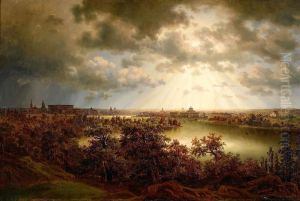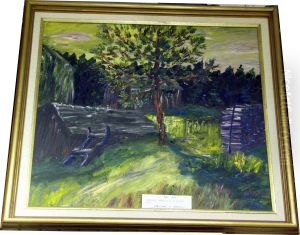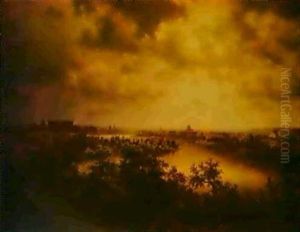Johan Erik Lundgren Paintings
Johan Erik Lundgren was a Swedish painter born on April 2, 1822, in Stockholm. He is primarily known for his genre paintings, which often depicted everyday life and historical scenes with a remarkable attention to detail and an empathetic portrayal of his subjects. Lundgren showed artistic talent at a young age and went on to study at the Royal Swedish Academy of Fine Arts in Stockholm. His education at the Academy provided him with a strong foundation in the techniques and principles of fine art, which he would later apply to his work.
After completing his studies, Lundgren traveled extensively throughout Europe, which was customary for artists of the time. His travels took him to countries like Germany, France, and Italy. Italy, in particular, had a profound influence on Lundgren's work, and he spent a significant amount of time there. The experience of studying the Italian masters and being exposed to the Mediterranean light and color palette had a lasting impact on his artistic style and subject matter.
Lundgren's paintings often reflect his interest in history and his keen observation of social interactions. His historical genre paintings frequently included scenes from the daily life of past centuries, offering a window into how people lived, worked, and interacted. His work was characterized by its narrative quality, where each painting told a story or captured a moment in time.
Throughout his career, Johan Erik Lundgren achieved recognition in Sweden and abroad. He exhibited his work in various art exhibitions, including the Paris Salon, where his paintings were well received. Despite his success, Lundgren always remained connected to his Swedish roots, and his paintings often conveyed a sense of national identity and pride.
Johan Erik Lundgren's contribution to Swedish art was significant, and his paintings have been collected and displayed in museums and galleries throughout Sweden. His legacy includes not only his own body of work but also the influence he had on the generations of Swedish artists that followed. Lundgren passed away on December 28, 1882, in Stockholm. His work continues to be appreciated for its historical value and its depiction of 19th-century life.


